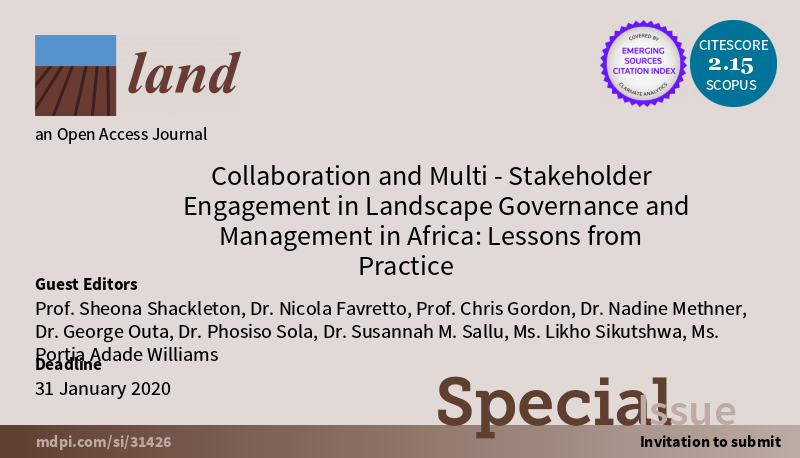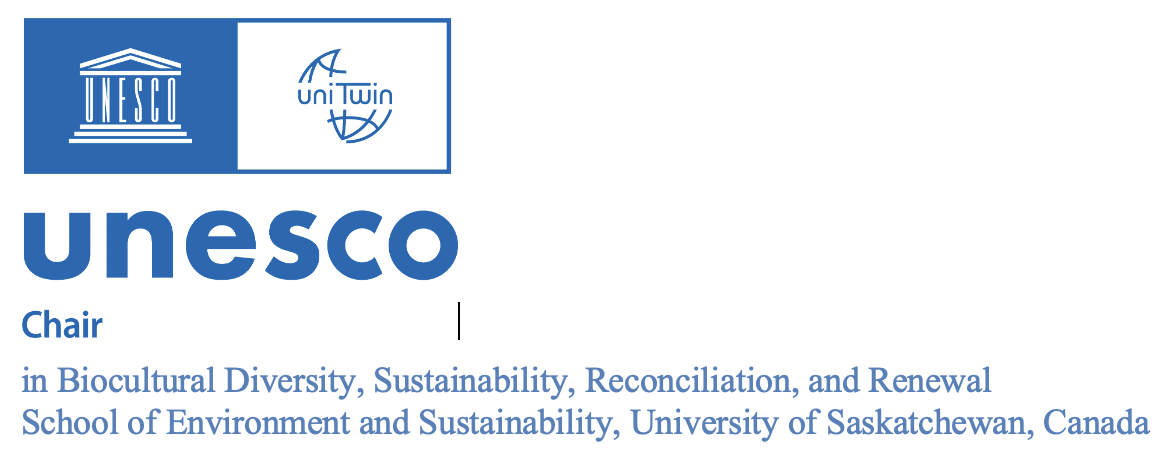
Special Issue of Land
Chair partner: Dr. Sheona Shackleton
Professor Sheona Shackleton is co-editor for a Special Issue of Land on collaboration and stakeholder engagement across landscape governance and management. Look out for this special issue in 2020.
Understanding the social and environmental impacts of multiple drivers of global and local change in Africa requires systemic and longitudinal place-based research. Landscapes provide the ‘ideal’ unit for this purpose, as well as for applying sustainable solutions that tackle complex—sometimes wicked—development and environmental challenges. Through a landscape approach, it is possible to explore the interaction between multiple sustainable development goals (SDGs), enabling understanding of the impacts of change and risk on biodiversity, ecosystem services, and livelihoods, as well as the implementation of locally appropriate and integrated response options. Indeed, landscape approaches have been widely promoted by government agencies, NGOs, and conservation organisations as a way for realising new pathways towards a more resilient future (e.g., https://peoplefoodandnature.org/about/). Synthesis work drawing on research from different landscape sites has helped to distil out a set of principles or conditions required for successful integrated, cross-scale landscape governance and management. A key condition that has received much emphasis is the need for stakeholder engagement and collaboration across the landscape.
Collaborative and multi-stakeholder governance and management of landscapes has the potential to promote the inclusion of marginalised voices, ensure appropriate actions and responses aligned to local concerns, cultures and needs, as well as bring frequently disconnected actors, sectors, and government institutions together in pursuit of the common goal of increased landscape resilience and sustainability. Moreover, meaningful collaboration that is accountable, inclusive, transparent, and legitimate can improve the chances that such partnerships will continue to function into the future. However, there is no single way to achieve effective collaboration. Different landscape projects have experimented with different entry points and engagement processes. This Special Issue aims to document these processes for engagement and collaboration, explore what has worked or not worked, identify what could be done better, and provide recommendations with the ultimate aim of providing practical guidelines for other landscape sites.


